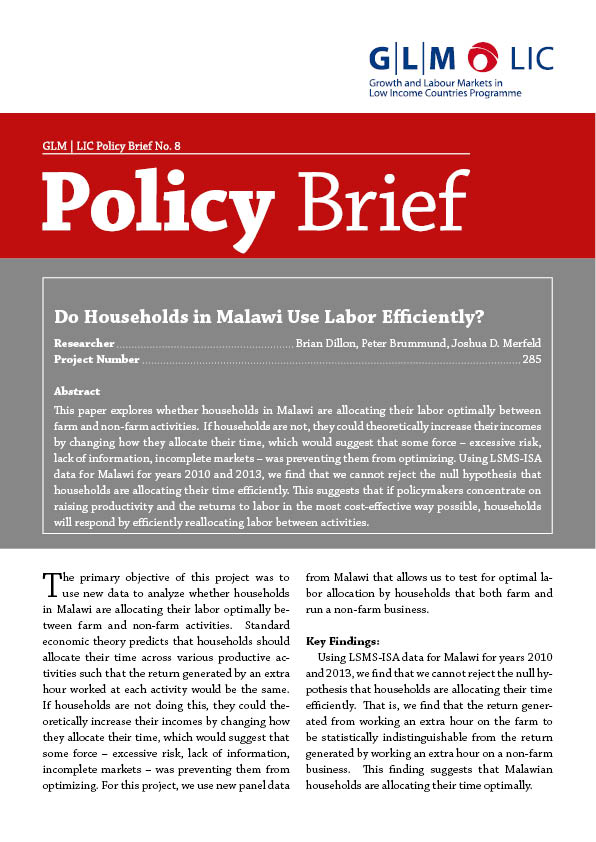This paper explores whether households in Malawi are allocating their labor optimally between farm and non-farm activities. If households are not, they could theoretically increase their incomes by changing how they allocate their time, which would suggest that some force – excessive risk, lack of information, incomplete markets – was preventing them from optimizing. Using LSMS-ISA data for Malawi for years 2010 and 2013, we find that we cannot reject the null hypothesis that households are allocating their time efficiently. This suggests that if policymakers concentrate on raising productivity and the returns to labor in the most cost-effective way possible, households will respond by efficiently reallocating labor between activities.

GLM|LIC Policy Brief No. 8
Do Households in Malawi Use Labor Efficiently?
- Brian Dillon
- Peter Brummund
- Joshua D. Merfeld